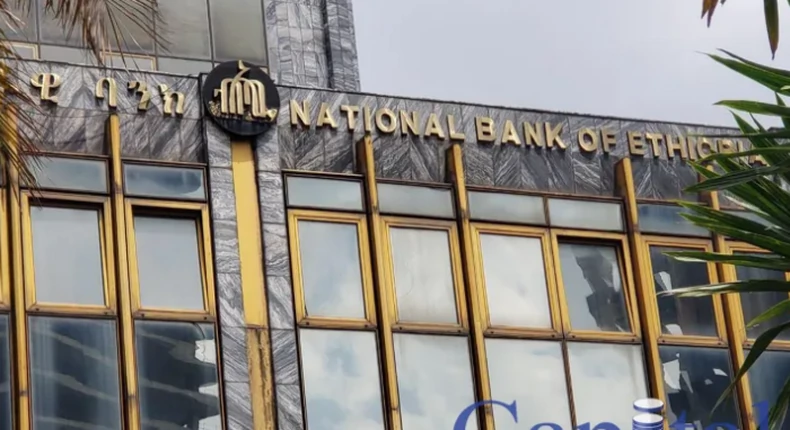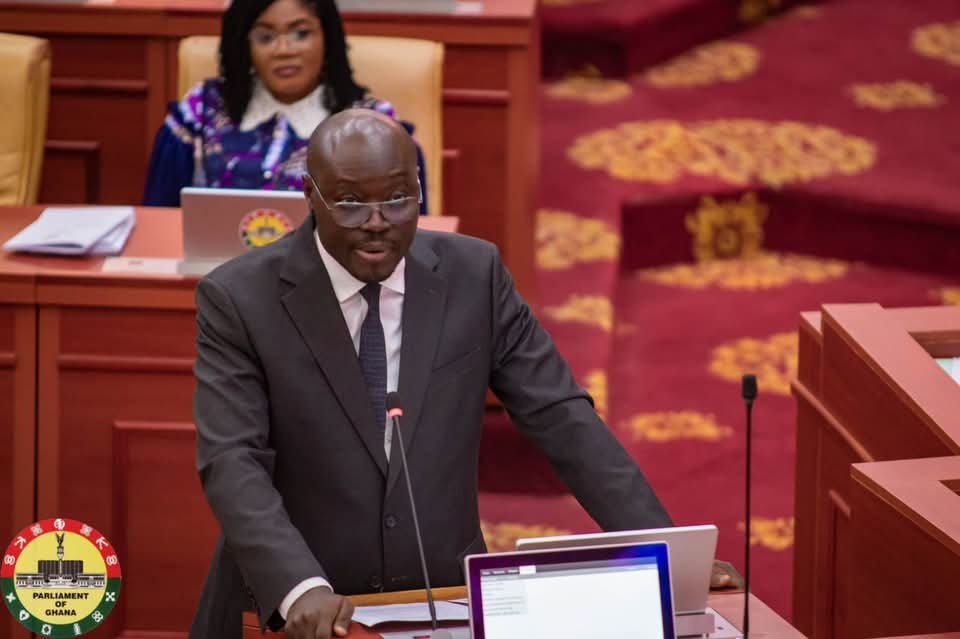Bussiness
As Ethiopia opens up banking sector to foreign players, there is an important caveat

- Foreign banks seeking to operate in Ethiopian following liberalisation of the country’s banking sector would be required to do so in partnership with local banks.
- Business Insider Africa observes that this could give room to some mergers and acquisitions in the Ethiopian banking sector.
- Ethiopia is in the process of liberalising its banking sector, with the aim of ending a decades-long restrictive banking policy that has prevented foreign banks from operating in the country.
One of the newly proposed rules that would guide Ethiopia’s banking sector liberalisation is that foreign banks hoping to operate in the Horn of Africa country must do so in partnership with local banks.
READ: [Op-Ed] On the road to a digital economy, Ethiopia is ramping up activity
This was disclosed by the lead consultant that is overseeing the liberalisation process, who also mentioned that only regional banks are eligible to the opportunity for now.
“The opening up might only be limited to regional banks in a joint venture basis with local banks… That will be easily manageable for the central bank. The first target is to boost the foreign currency inflow. There are many legal framework revisions underway and many are in a draft stage,” the consultant was quoted by Ethiopian newspaper The Reporter.
READ: Why is the dollar shortage crisis in Africa getting worse by the day?
The important caveat is coming just months after the Ethiopian Government announced that it had constituted a liberalisation committee whose job it is to establish the modalities that would guide the liberalisation process.
The implication, therefore, is that we might be seeing some mergers and acquisitions in the Ethiopian banking sector anytime soon.
Business Insider Africa reported earlier that the Ethiopian banking sector liberalisation committee has begun working towards replacing the country’s decades-old financial services code with a new one.
READ: Ethiopia is in the process of establishing its own stock exchange
The primary aim of the new financial services code is to end Ethiopia’s restrictive banking policy which has, up till now, prevented foreign banks from investing and setting up shops in the country.
The first draft of the new code is expected to be ready by December 2022. It will, among other things, stipulate the modalities for foreign banks to operate in Ethiopia.
READ: Amid fintech boom, report details how African banks can still gain an edge
Recall that Prime Minister Abiy Ahmed was the first to disclose Ethiopia’s ongoing plan to open its banking sector to foreign banks. Last month, he declared that “we will bring foreign banks because we need additional wealth and hard currency. Regarding this, the government is now preparing a policy amendment. Once preconditions are met and banks are prepared, we will (implement) that.”
The banking reforms in Ethiopia presents an opportunity for some of Africa’s biggest banks to position themselves in the Horn of Africa country.
READ: Paga announces official launch in Ethiopia following regulatory approval
Source: www.pulse.com.gh
Bussiness
Ghana to host mining and minerals convention 2025 to shape future of gold industry

Ghana’s gold and minerals sector is set for a major spotlight as Meetings. Co, in partnership with key industry stakeholders, announces the Mining & Minerals Convention 2025, scheduled from August 26-27, 2025, at the Kempinski Hotel Gold Coast City, Accra.
Held under the theme “Shaping the Future of Ghana’s Gold Industry,”‘ the Convention will convene government leaders, regulators, miners, refiners, investors, sustainability partners, innovators, and responsible mining, and global competitiveness,policy experts to explore strategies that position Ghana’s gold industry for long-term growth.
The two-day convention will feature presidential and ministerial keynote addresses, industry thought leadership, technical paper presentations, policy dialogues, fireside chats, exhibitions, and high-level networking sessions.
Convention delegates can anticipate a dynamic and insightful experience, marked by thought leadership from leading policymakers and regulators, in-depth discussions on key topics such as sustainability, ESG, digital gold, and responsible sourcing, as well as valuable opportunities to forge public-private partnerships and investment deals.
Moreover, the event will offer practical action points aimed at unlocking greater economic value for Ghana.
The 2025 edition will be supported by a strong coalition of strategic partners, including the Ministry of Lands and Natural Resources, the Minerals Commission, GoldBod, the Minerals Income and Investment Fund (MIIF), and the Ghana Extractive Industries Transparency Initiative (GHEITI).
Bussiness
Finance Minister tranfers funds to DACF, NHIS and GETFUND

The Minister for Finance Hon. Cassiel Ato Forson has disclosed that a sum of nine hundred and Eighty-Seven Million, Nine Hundred and Sixty-Five thousand and Seventy-Three Ghana Cedis (GHS987,965,073.00) from the Consolidated Fund into the District Assembly Common Fund Account, being the first quarter amount due to the DACF.
Furthermore, the Finance Minister informed the House that a total amount of Two Billion, Thirty- Three Million, Four Hundred and Sixty-Nine Thousand, Six Hundred and Seven Ghana Cedis (GHS2,033,469,607) has been disbursed to the National Health Insurance Fund.
While the Ghana Education Trust Fund has also received a total of Two Billion, Seven and Ten Million, Two Hundred and Twenty-Seven Ghana Cedis (GHS2,710,227,947.00) for the months January, February, March and April,2025.
The Finance Minister disclosed this in his statement to Parliament on the payments to statutory funds on the floor of the House.
In addition, he cautioned that the Administrator of the District Assembly Common Fund is required to ensure that 80% of this amount is transferred directly to the Assemblies without fail and expenditure returns submitted to the Ministry of Finance before subsequent releases will be made.
He added that Members are encouraged to monitor the utilization of these amounts sent to their respective Assemblies in line with the approved guidelines by Cabinet.
In his closing remark, Ato Forson said he’s going to take the concerns of the House seriously.
For his part, the Majority Leader, Mahama Ayariga made known the President’s prioritization of women in the country stating that President Mahama is “Pro-women”.
This is due to the fact that women are going to be the core beneficiaries from the expenditures going to be made by the MMDA’s, he added.
The Minority Leader Alexander Afenyo-Markin questioned the Finance Minister why road contractors have not been paid for more than five months. He said the Minister must not be applauded for since the allocation of these funds were long overdue.






